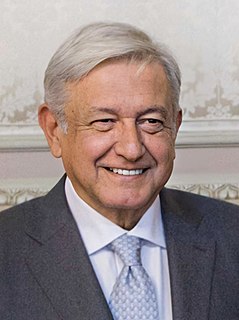A Quote by Evo Morales
The relationship between the government of the United States and social and indigenous movements has always been difficult. Not just in Bolivia but worldwide. We need to have bilateral relations characterized by mutual respect.
Related Quotes
We have always been prepared to negotiate with the U.S. government everything that has to do with bilateral relations, on a basis of the strictest mutual respect for the sovereign rights of each country. We will never try to ask the government of the United States to change its economic and political system.
Bolivia is in the lead internationally in talking about the threat of environmental catastrophe. It's generally true where there are indigenous populations, there are important things happening; where the indigenous populations have been marginalized or exterminated, things go to a disaster. This is true worldwide, and Bolivia is striking because it's a majority population and in the lead.
I view the relationship with Canada as a vital relationship for the United States. The relationship, of course, is defined government-to-government. It's also defined people-to-people, and there's a lot of people in my country who respect Canada and have great relations with Canadians, and we intend to keep it that way.
Unfortunately, the relations between the United Kingdom and Russia have not developed in the best possible way; however, it has never been our fault. It was not we who decided to discontinue relations with the United Kingdom; it was the UK who preferred to "freeze" our bilateral contacts in various fields.
The nationalism and the protectionism that was built into the Mexican Revolution in 1910 and that characterized the Mexican attitude to the United States for much of the 20th century were difficult to overcome. But that actually has occurred. And the cooperation, trust and confidence that have been built is not something that should be abandoned without great consideration for the potentially grave consequences to the United States.
Venezuela, Bolivia and Ecuador lived through times of cruel and ruthless capitalism where the workers, the masses of the population, saw themselves living in a precarious state of employment and subsistence conditions. The impact of this reality took hold and impacted the evolution of the social situation of those countries and even though that produced movements that were not exactly political movements but social movements.
The Soviet Union, true to the Leninist principles of respect for the rights and national independence of all peoples great or small, has always been and is guided in its relations with other countries by the principles of mutual respect for territorial integrity and sovereignty, non-aggression, non-intervention in each other's internal affairs, equality and mutual benefits, peaceful coexistence and economic cooperation.
Venezuela, Ecuador, Bolivia, and Nicaragua have made a tremendous leap just by rejecting the neoliberal adjustment policies, they are making a statement from the social perspective. Capital in these cases has not been protected in any way which along with non - interference of the state is what neo liberalism stands for. It has gone the other way around; they have looked for social policies from the political movements and then when they have acquired the power of those political movements they have become in charge of the State.
The relationship between the United States and Mexico goes over and beyond the relationship between two governments. This is a relationship that has been built as of two peoples who have a common life, or millions of people who have their everyday lives in both nations; a relationship that undoubtedly involves millions of inhabitants of both countries.









































